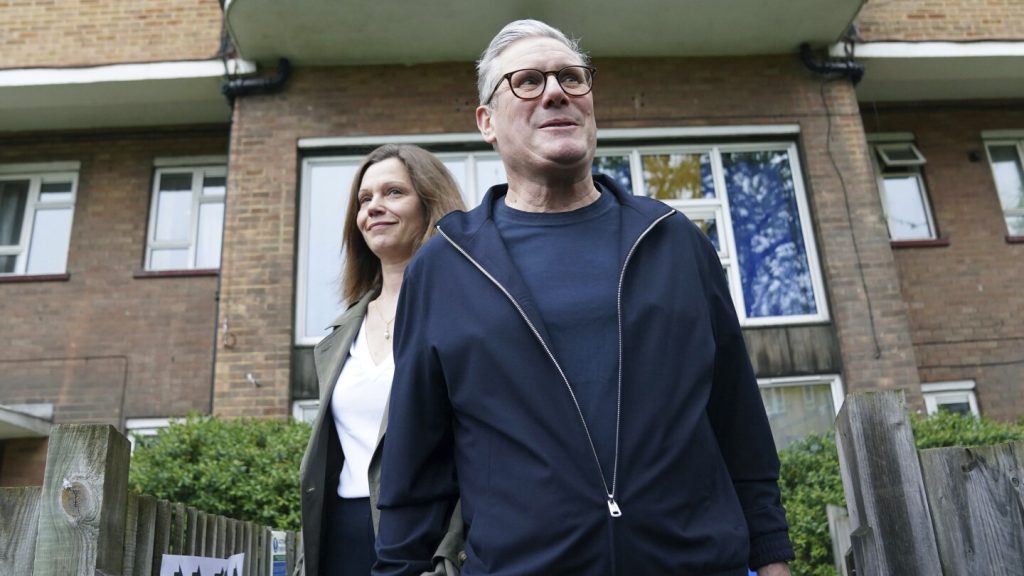Millions of voters in England and Wales are gearing up to cast their ballots in local elections on Thursday, which will serve as a crucial test before a U.K. general election that is likely to see the Conservative Party lose power after 14 years. Prime Minister Rishi Sunak will be hoping for victories in key mayoral races to quell speculation about a potential change in leadership before the upcoming general election. On the other hand, Labour Party leader Keir Starmer hopes the local elections will confirm the party’s trajectory towards power for the first time since 2010, as indicated by opinion polls over the past two years.
As the run-up to British local elections often involves managing expectations, any outperformance by the Conservative Party can be framed as a success. However, predictions suggest the party may lose around half of the 1,000 seats they are contesting. These elections are significant in determining who will oversee various aspects of daily life, such as garbage collection and local crime prevention measures. With a general election on the horizon, the local elections will be viewed through a national lens, shaping the political landscape for the upcoming general election.
Voters in England and Wales will participate in local, mayoral, and police and crime commissioner elections, providing a final gauge of public sentiment before the general election, which is expected to occur in the second half of 2024. Key races include mayoral contests in London and various elections for local councils and police and crime commissioners. The outcome of these elections, including a special parliamentary election in Blackpool South, will be closely watched as indicators of the overall political mood in the country, with London’s mayoral result expected on Saturday.
Prime Minister Rishi Sunak’s position is at risk, with mounting speculation that he may face a leadership challenge if the Conservatives perform poorly in Thursday’s elections. Following a series of setbacks for the Conservative Party, Sunak’s leadership has not significantly improved public support for the party. The results of mayoral elections in the West Midlands and Tees Valley will be crucial for Sunak’s political future, as victories for Conservative mayors could provide him with some respite within his party.
In terms of Labour’s prospects for power, the party faces a significant challenge based on its historical performance and the legacy of former leader Jeremy Corbyn. Current leader Keir Starmer has attempted to steer the party back to the center of British politics, leading to positive results in opinion polls. However, enthusiasm levels for Labour do not match previous highs, potentially due to the challenging economic environment and Starmer’s less charismatic leadership style. The party hopes to regain support in regions it lost under Corbyn, with concerns about voter turnout in Muslim communities over the party’s stance on conflicts such as the one in Gaza.
Tactical voting, a strategy that proved effective in Tony Blair’s landslide victory in 1997, has reemerged as a factor in recent elections. Voters may choose to support a different party to prevent the Conservative candidate from winning in their constituency, particularly in areas where the vote is closely contested. The Conservatives also face a challenge from the right, with Reform UK trying to attract voters by positioning itself as tougher on issues such as immigration and Brexit. The outcome of the Blackpool South special election will be a key indicator of how this shift may impact future general elections.


